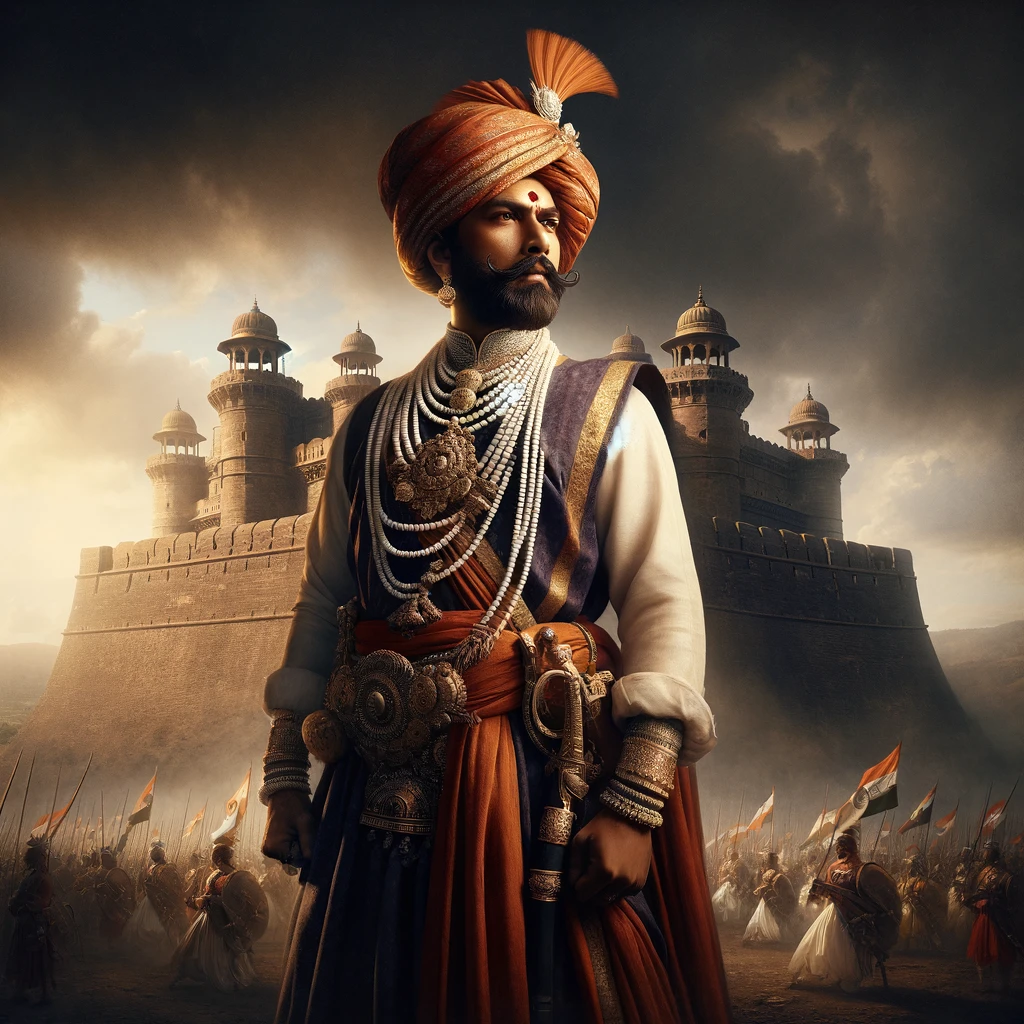Introduction
In the annals of Indian history, few figures stand as prominently and with as much reverence as Chhatrapati Shivaji Maharaj. A visionary leader and valiant warrior, Shivaji carved out an enclave from the declining Adilshahi sultanate of Bijapur that laid the foundation for the Maratha Empire. His legacy is not just the kingdom he built but the ethos of resistance, innovation, and governance he left behind, which continues to inspire millions around the globe.
Early Life and Background
Born in the hill-fort of Shivneri, near the city of Junnar in what is now Pune district, Shivaji’s early years were influenced by the tumultuous period of the 17th century, marked by the decline of the Mughal Empire and the rise of various smaller kingdoms. Under the tutelage of his mother, Jijabai, Shivaji adopted the ideals of Hindu culture and the Maratha heritage, which later became the bedrock of his rule and vision for Hindavi Swarajya (self-rule).
Rise to Power
Shivaji’s journey to power began with the bold capture of the Torna Fort at the tender age of 16. This marked the inception of the Maratha Empire, as he went on to annex more forts and territories. His vision of Hindavi Swarajya was not just about creating a domain free from foreign rule but also about establishing a realm where justice and welfare for the common people were paramount.

Military Innovations and Strategies
The cornerstone of Shivaji’s military success was his innovative guerrilla warfare tactics, which leveraged the rugged mountains and deep forests of the Deccan Plateau. His strategy, focusing on speed, flexibility, and surprise attacks, allowed his relatively small forces to outmaneuver and defeat larger enemy armies. The Battle of Pratapgad, where Shivaji’s forces vanquished the army of the Bijapur Sultanate, is a testament to his strategic genius.
Governance and Administration
Shivaji was not just a military strategist but also a visionary administrator. He established a competent and progressive administration with a well-structured judicial system. His governance was characterized by the ashtapradhan (council of ministers), innovative revenue collection, and promotion of Marathi and Sanskrit to reduce the influence of Persian in administration. Moreover, Shivaji’s emphasis on naval strength and fort architecture, like the construction of Sindhudurg Fort, showcased his understanding of the importance of maritime power and defense.
Legacy and Cultural Impact
The legacy of Chhatrapati Shivaji Maharaj transcends the boundaries of time and geography. He is remembered as a champion of swaraj, swadharma, and swarashtra, inspiring generations to uphold the values of courage, strategic acumen, and righteousness. His vision and deeds have been instrumental in shaping the Indian ethos of resistance against oppression and the pursuit of justice.
Conclusion
Chhatrapati Shivaji Maharaj’s life and legacy are a testament to the enduring spirit of human resilience and ingenuity. As the architect of the Maratha Empire, his strategies and principles of governance continue to be studied and admired. In today’s world, where challenges to freedom and justice persist, Shivaji Maharaj’s journey offers timeless lessons in leadership, strategic planning, and the unyielding pursuit of ideals. Let us take inspiration from his extraordinary life to navigate the complexities of our times with courage and wisdom.